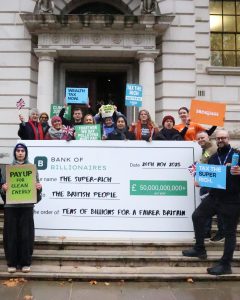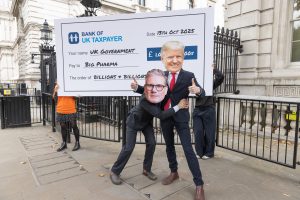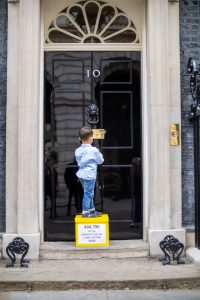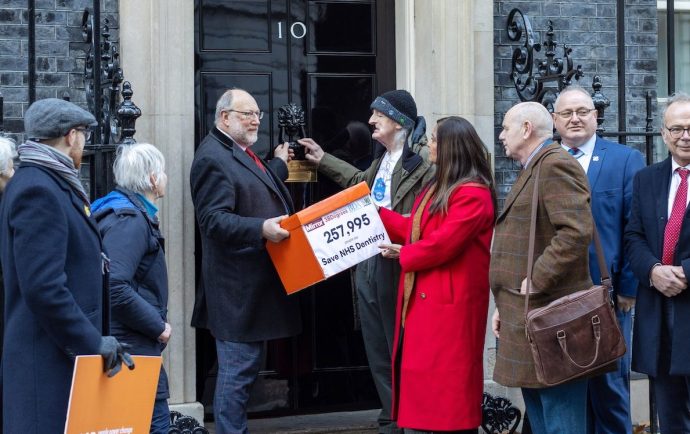
Mar 18th, 2011
Interview with Nicholas Shaxson: Part Two
By RamziS
Nicholas Shaxson, tax expert and author of ‘Treasure Island: Tax Havens And The Men Who Stole The World’, a book described as the “most important of the year”, noticed 38 Degrees’ campaign against tax dodging. He asked if 38 Degrees would be interested in doing an interview with him. 38 Degrees members came up with the questions, this is the second all three instalments of his replies:
How does the UK relate to other countries in the world for tax dodging? if we are one of the “dodgiest” countries then is it relative to high corporation tax which other countries don’t have? (Ihmya Boydfriend)
Nicholas Shaxson: When we are talking about the UK, there are two things that are happening. The first is: the UK tax authorities are losing money as wealthy individuals and corporations stash their money in tax havens, evading or avoiding tax on their income. George Monbiot’s recent excellent article in The Guardian is about a shift that may be underway that would make matters worse.

Photograph by altogetherfool (Flickr)
The second is that the UK is a tax haven in its own right. And it is doing two main things. One the one hand, it’s creating all sorts of tax exemptions, offering secrecy and other attractions that suck money in from elsewhere, so that the residents of other countries can dodge taxes or whatever. On the other hand, and more importantly, it runs a network of tax havens around the world – this picture of the world’s tax havens, with the British ones in blue, gives an idea. About half the global offshore system is, in one way or another, British. These tax havens channel huge sums of money, and the business of handling that money, in to the City of London. It may be bank deposits in Jersey being sent up to HQ in London; it may be a crosss-border business deal being routed through UK havens and the business of setting it all up being outsourced to London; it may be a dictator’s assets being provided with a secrecy structure laddered through Gibraltar, Cyprus, Luxembourg, the Caymans or whatever – with the ultimate asset: the bank account, or the luxury house, or the painting – actually held in London.
So there’s money flowing in two directions. Money is being lost to tax havens elsewhere. Meanwhile, Britain’s tax haven network around the world is sucking money back in. But it’s crucial to understand – this is the key point – that the money coming back in does not make up for the money being lost. The money coming in is going to the City and it’s creating too-big-to-fail banks; a financial sector that has the government and taxpayers by the throat; property bubbles and real estate speculation. Are we really any better off than say the French, German, Swedes, as a result of these vast inflows? I’d say no – we have a far more unequal country, more very wealthy people, but more poor people too.It is in this sense that one can talk about Britain as the “dodgiest” country, I think. It’s not about our tax rates, really. It’s about our role running half the world’s tax havens.
I believe about 2 thirds of the worlds tax havens are British territories. Is this true? (Mike Dorey)
NS: As I mention above, the figure is about half. That’s the Tax Justice Network’s estimate. It’s not just them, though: Conservative MP Mark Field, one of the tax havens’ staunchest defenders, recently was quoted as having said:
“Half of the top 30 offshore financial centers are British dependencies or territories.”
One can quibble a bit with the share, but not much.
Can the government actually have any control over, for example, Jersey and any other “colonial” posessions that are operating tax havens? (Peter McCrone)
NS: Very good question. You have the three Crown Dependencies –Jersey, Guernsey and the Isle of Man – and then the 14 Overseas Territories – seven of which are tax havens: Anguilla, Bermuda, British Virgin Islands, the Cayman islands, Gibraltar, Turks and Caicos, and Montserrat. Wikipedia calls the latter “remnants of the British Empire that have not acquired independence or have voted to remain British territories.” These places are partly controlled by Britian – the Queen appoints the governor, for example – but also partly separate: each has its own limited form of local politics and elections. Britain’s role is understated and it doesn’t like having to show its power: it prefers this slight distance that allows it to say “there’s nothing we can do” when something ugly breaks the surface. Every now and then Britain’s hand behind the scenes is revealed – such as when governance in the Turks & Caicos got so crooked that Britain had to impose direct rule.
This British underpinning is absolutely crucial. When the Bahamas became fully independent from Britain under premier Lynden Pindling in 1973, the money fled in droves to the Cayman Islands. “It wasn’t that Pindling did anything to damage the banks,” noted offshore lawyer Milton Grundy. “It was just that he was black.” If the jurisdiction is under the queen, the financiers are reassured. Britain could transform the offshore system overnight, if it chose to.
I’d like to know if the British government really would like to deal with the loopholes? (Lisa Howarth)
NS: I think that the answer is, generally, only up to a point. The Monbiot article I cite above is an example of which way this is going – this really is an effort to give corporations what they want, and let the ordinary British taxpayer pay the taxes they won’t pay. It’s not just the current government either. Gordon Brown promised in 1997 to crack down on tax havens before he came to power, and then did very little indeed. This is ultimately about the City protecting its interests, which means protecting the tax havens, to attract the inflows. Also, as regards the outflows, my book in the last chapter outlines how the British tax authorities steadily changed their culture away from a process of really trying to get corporations to pay their way, into one where corporations became “clients” and it was important to keep them happy.
You can follow Nicholas Shaxson on twitter at: http://twitter.com/nickshaxson
Nicholas Shaxson also recomends Richard Murphy’s Blog
and this Tax Justice Blog
You can read part one of the interview here.
You can read part three here.

















